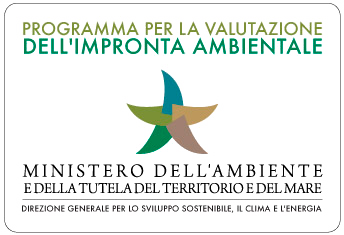This happens because we try to safeguard the environment with our actions and promote more sustainable development during each phase of our work, including production, transport and the recycling of scrapped products.
Since 2006 we have set up a consortium with other companies in the agri-food sector for the construction of wind farms in the province of Foggia. Today, the wind energy we produce (180,000 MWh/year) is more than enough to supply all of our production.
All Valfrutta plants have closed water circuits to circulate the water required for the production processes, which is reused several times (we recover around 70% of the water we use).
Before returning it to the environment, the water is purified and analysed for environmental performance indicators.
To start up the machinery in our factories we prioritise heaters powered by methane, which is the least contaminant of the fossil fuels.
In addition, residual steam is used to heat the water that feeds the heaters, thus reducing the use of fuel and saving energy.
At the end of the production process, it is inevitable that there is leftover waste; we seek to reduce its impact on the environment. In our factories we optimise the recovery and recycling of the waste from the processing of the raw ingredients.
The sludge from the treatment of residual water is purified and reused in farming. Finally, it should be noted that we separate 90% of waste in all our establishments.
In 2010, our factory in Pomposa (FE) opened a biomass plant that allows the bi-products of the agricultural work to be reused to produce electrical energy; the plant converts the blend of methane and CO2 produced by the vegetable waste into useful fuel for producing electrical energy (which, in turn, is used in the factory, covering 30% of its needs).
We are looking into a similar project in Alseno (PI).
In order to minimise fuel consumption, reduce journeys and have a lesser impact on the environment, our factories are located an average distance of 50km from farms.
Since 1995 we have used a multimodal transport system; an integrated wheel and rail system that allows us to considerably reduce CO2 emissions compared to traditional transport on wheels.
Our production is always in harmony with the land and what it offers us each month; we study the characteristics of the soils and the previous crop cycles to determine the exact varieties of fruit and vegetable that suit the specific field, climate and region.
This is the only way we can be sure that we are respecting the environment and the land we work on, and that the quality of our products is excellent.
The #ValfruttaGreen project has allowed us to carry out an in-depth analysis of the lifecycle of all Valfrutta products. The work continued in 2013 after the agreement reached with the Ministry of the Environment, whose aim was to calculate and limit the carbon footprint, that is, the greenhouse gas emissions directly or indirectly associated to a product. Today Valfrutta also believes it is necessary to certify the Water Footprint, which measures the water consumed due to the production of the product using the water scarcity index.

To reduce the environmental impact of our production processes.
GOALS ACHIEVED
Under the supervision of a work group from the Ministry’s Directorate-General of Sustainable Development, Climate and Energy, research was carried out with rigorous scientific criteria, taking into account the complete production process.